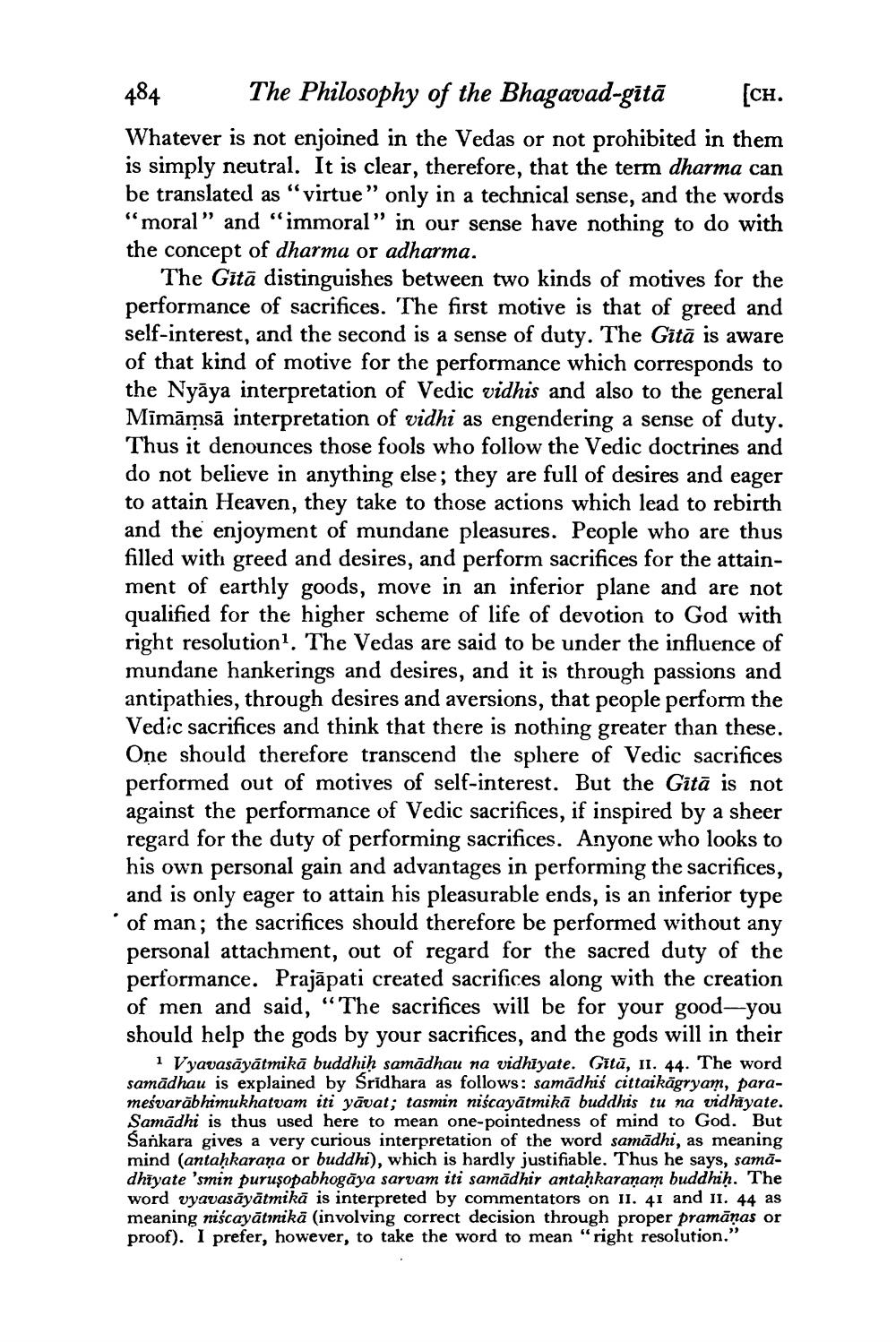________________
484
The Philosophy of the Bhagavad-gitā [CH. Whatever is not enjoined in the Vedas or not prohibited in them is simply neutral. It is clear, therefore, that the term dharma can be translated as “virtue” only in a technical sense, and the words "moral" and “immoral” in our sense have nothing to do with the concept of dharma or adharma.
The Gitā distinguishes between two kinds of motives for the performance of sacrifices. The first motive is that of greed and self-interest, and the second is a sense of duty. The Gitā is aware of that kind of motive for the performance which corresponds to the Nyāya interpretation of Vedic vidhis and also to the general Mīmāņsā interpretation of vidhi as engendering a sense of duty.
Thus it denounces those fools who follow the Vedic doctrines and do not believe in anything else; they are full of desires and eager to attain Heaven, they take to those actions which lead to rebirth and the enjoyment of mundane pleasures. People who are thus filled with greed and desires, and perform sacrifices for the attainment of earthly goods, move in an inferior plane and are not qualified for the higher scheme of life of devotion to God with right resolution?. The Vedas are said to be under the influence of mundane hankerings and desires, and it is through passions and antipathies, through desires and aversions, that people perform the Vedic sacrifices and think that there is nothing greater than these. One should therefore transcend the sphere of Vedic sacrifices performed out of motives of self-interest. But the Gitā is not against the performance of Vedic sacrifices, if inspired by a sheer regard for the duty of performing sacrifices. Anyone who looks to his own personal gain and advantages in performing the sacrifices, and is only eager to attain his ple of man; the sacrifices should therefore be performed without any personal attachment, out of regard for the sacred duty of the performance. Prajāpati created sacrifices along with the creation of men and said, “The sacrifices will be for your good-you should help the gods by your sacrifices, and the gods will in their
1 Vyavasāyātmikā buddhih samādhau na vidhīyate. Gitā, II. 44. The word samādhau is explained by Sridhara as follows: samādhis cittaikāgryam, paramesvarābhimukhatvam iti yāvat; tasmin niscayātmikā buddhis tu na vidhīyate. Samādhi is thus used here to mean one-pointedness of mind to God. But Sankara gives a very curious interpretation of the word samădhi, as meaning mind (antahkarana or buddhi), which is hardly justifiable. Thus he says, samadhiyate 'smin purusopabhogāya sarvam iti samādhir antahkaranam buddhiḥ. The word vyavasāyātmikā is interpreted by commentators on II. 41 and 11. 44 as meaning niscayātikā (involving correct decision through proper pramāņas or proof). I prefer, however, to take the word to mean "right resolution."




